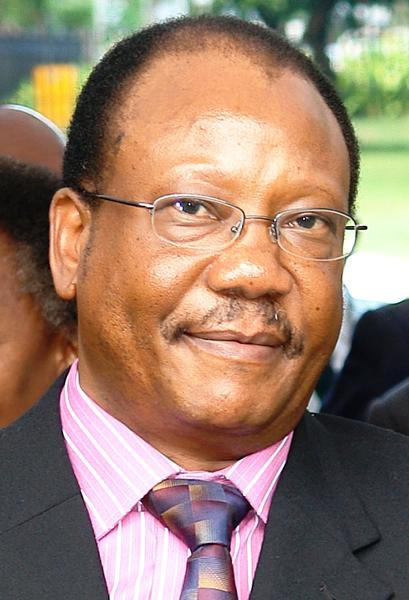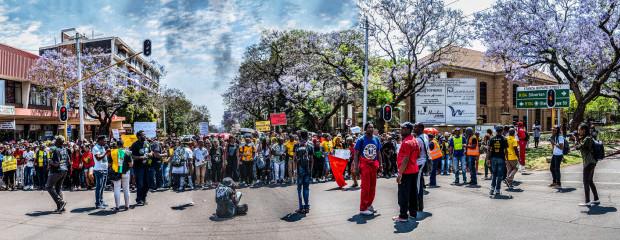Politics of Aid in Darfur: The NGO Expulsions Seven Months On
When the 13 aid agencies were expelled from Darfur, about seven months ago, voices were raised about the possible humanitarian implications of this on the people of Darfur.
The Guardian on 5 March 2009 mentioned that “About 4.7 million people rely on food, medical or water aid in Darfur, including 2.7 million people displaced by fighting. The expelled organisations carry out at least 50 per cent of the work there. The article continued “The European Commission called on Sudan to immediately reverse the expulsion orders. “Let’s be very clear, the lives of hundreds of thousands of people are at stake,” said John Clancy, the EC’s spokesman for humanitarian aid.
He continued: “Without these 13 agencies, aid workers said, food aid deliveries for 700,000 people are jeopardized, water pumps could run dry and rust, refugee schools could close, vital medicines could run out, pregnant women could lack prenatal care “” and, in general, life in one of the most forbidding patches of Africa will become even more desperate”.
If these claims were said with a certain degree of accuracy we should be talking now about the death of around one million people in Darfur because of lack of food and other basic services that were solely and exclusively provided by these 13 aid agencies who manage over 60% of the total humanitarian aid funds to Darfur, as the media kept telling us….but…
I have mentioned in this forum that these crises have lots of political reasons rather than humanitarian ones, and that it was a mistake on the part of the NGOs and the policies they serve to try to mix humanitarianism with politics. We also argued that the West still needs to learn a lot about the culture of the corrupt and non-corrupt leaders of Africa. Simply coercion and threats won’t work here. The whole world witnessed Omer El-Bashir, within few hours from the ICC decision, smiling and dancing more than he ever did; over and above he made over five trips outside of the country, in a matter of few weeks in a daring sign of total defiance. That is how the leadership reacts to threats in this part of the world, the more you press them, the more they push you and strike back.
I mentioned in this blog that the government was determined to prove the NGOs are wrong, overrated and useless and that it (the Sudan government) is capable to prove this because it has the political determination and has the resources.
I also argued that the IDPs are not going to die because of the expulsion of the 13 aid agencies, and that life will go on, only with the missing opportunity of the 13 NGOs being (more rational, wise, and professional to stay) in Darfur and provide pure humanitarian services, leaving the politics and the conflict management to the human rights agencies, the advocacy groups and the foreign governments. I guess that is what I understand from humanitarian neutrality and the humanitarian code of conduct. I know also from practical experience of humanitarian program project development that when I start by developing a problem tree (analytical tool) and identify all the causes of the problem and start building my “smart” project objectives to address these causes, I know for sure that I do not and cannot address all the causes, because aid agencies projects, by definition, have limited scopes, resources, capacities, targets, and time frames.
Simply put also, when as an aid agency you are faced with the moral choice of providing much-needed life saving or basic needs services to people, and the choice of taking a controversial political advocacy position (to address the political causes of the problem) that could possibly result in kicking you out of the country of your operation, and hence prevent you from rendering those services to the people who need them, I guess you possibly become morally responsible for increasing those people’s suffering re-victimising them by taking that uncalculated risk. Approaches that attempted to bring together humanitarian and human rights, such as the rights-based approach to humanitarian interventions, faced and is facing serious criticism and dilemmas of clarity when tested at the policy and implementation levels as a result of basic questions of what type of rights to prioritize and emphasize and why (political, economic, civil, social, cultural…etc) mandates to protect these rights, and means of ensuring accountability many of which are beyond the capacity of any organization and will only lead to diversion and waste of efforts.
Dealing with humanitarian operations in conflict settings means we are dealing with complex systems, and there are divisions of roles in any complex system. There exist certain institutions that are mandated to do advocacy work while others do the relief and rehabilitation work and proceed to development when possible or leave that role to others. Political advocacy is not part of the original humanitarian charity work.
Humanitarian work during emergencies stems from the need to lift the immediate suffering of people by meeting their basic survival needs such as access to food, shelter, water, health…etc. This process cannot be political unless we “chose” to make it so. In complex and protracted emergencies, aid agencies has to respect their limits and mandates, while the situation requires a political solution at a different and non humanitarian level and by different players and stakeholders, unless of course we intentionally plan to use the humanitarian aid as a political pressure tool, and hence we take the moral risk of punishing and penalizing the victims with the possible consequences of our actions.
Since the Second World War, the humanitarian aid has gone through various developments necessitated internally by the needs to ensure quality, accountability, effectiveness and sustainability. However, it has also been subject to external influences by government and institutional donors with tendencies to link this purely humanitarian and charity endeavour to some political ends. The case of the pushing aid to take part in the complex formula of the north-south politics (marshal plan, migration prevention policies…etc) and to serve the donors specific political agenda and which evolved to encompass direct involvement by aid agencies in internal conflicts through advocacy and support of political actions, has greatly jeopardised the mission of aid agencies. What happened in Darfur stands as a case in point.
When these aid agencies accepted to take that role, accepted to transform their missions to the politics of interventions in a protracted political conflict, and when the international public propaganda was waged over their subsequent expulsion, it was just another proof that the back donor governments and institutions were merely concerned about the roles these agencies can play for them by being present in Darfur not only to give a political signal (hey we are here) but also to take active role in voicing the politically driven advocacy of these donors, and not actually out of concern about the well being of the IDPs in the camps or what relative humanitarian value these NGOs can bring. It was also, sadly, a proof and an indication of how aid agencies became donor-driven in transforming their own humanitarian agenda and principles.
I am not at all in support of the decision of the government to kick out the NGOs, I have actually called for leaving Luis Moreno-Ocampo to do his job, while aid agencies do their own jobs and focus on the humanitarian support for the IDPs and on the services that can build and bring local peace.
Seven months after the expulsion of the 13 NGOs, I am interested to see if there is any study that can provide evidence of the deterioration of the humanitarian situation of the IDPs that is proportional (in number of deaths and access to services) to the claimed over 50% reduction of aid funds and 80% reduction of services coverage as a result of the expulsion decision?
Simply, if the effect was not proportional to these percentages of funding and coverage, a very legitimate question should be raised: What were those largest 13 international aid agencies doing in Darfur if the loss of their huge funds was not significantly felt? A question that I hope they will ask themselves.







Excellent question and commentary, though could be cut to a third the length. My two comments:
-If you don’t find any such study, what conclusion will you draw?
-If you do find the study, and it agrees with your prior that the expulsion led to little change in the well-being of the 4.7 million people broadly speaking, will you then recommend that the rest of the agencies be expelled? Or do you think the government had already conducted a study about the comparative effectiveness of the aid agencies, and expelled the most ineffective?
Ana
Ahmed Hassan is correct to point out that the humanitarian crisis that was feared after the expulsion of the NGOs did not materialize. Although the nutrition indicators continue to fluctuate there is no indication of a generalized humanitarian crisis let alone famine conditions. Because the harvest has been very poor in many parts of North Darfur, there may be some deterioration in early 2010.
Of course there is the counterfactual: what might have happened if the NGOs had not been expelled? Might the amelioration in living conditions have continued? How might the slow trickle of returns to abandoned villages have been hastened?
The situation with regard to food and livelihoods is not the complete picture. Certain important services have been disrupted. A particular example is services to women survivors of sexual violence, which were provided discreetly by several international NGOs and which have now ceased (see Rebecca Hamilton’s recent article on the subject). See: http://www.tnr.com/article/world/left-behind
Why did the feared food/livelihoods crisis not occur? There are several reasons. The first is that the actual population of the IDP camps is smaller than the registered population. This happens in every refugee or IDP crisis and becomes more pronounced as time passes. People leave the camps for the towns or to return home, or move from one camp to another, but ration cards are not handed back. All those involved in the distribution chain down to the final recipients have good reasons to stop the numbers from decreasing. The prospect of doing a proper headcount in the Darfur IDP camps is both a security nightmare and a political hot potato and it probably won’t be done any time soon.
Second, Darfur IDPs have developed ‘multi-nodal’ livelihoods, integrating the camps with the urban areas (especially Nyala, the region’s boom town) and the rural areas. People in Darfur are famously resilient and creative in adapting their livelihoods and have done so under these circumstances.
Third, the Sudan government and the UN stepped up and helped fill the gap. The increased government role shows what the government had been capable of all along, and begs the question of why there was not a bigger governmental provision of services earlier. In food distribution, the NGOs were part of the delivery chain, with World Food Programme at the top and the distribution committees at the lower end: the task required was to join up the parts of the chain that remained, not to bring in more resources. The fact that the NGOs played this particular role as a service subcontractor also compels us to ask—in line with Ahmed Hassan’s posting—what added value did the international NGOs provide?
Dear Ana Majnun,
Thank you very much for response. With regards to your two comments:
1. I have already concluded without such study that the situation did not deteriorate proportional to the (loss) of funding that these 13 NGOs were managing. This raises one question about their cost effectiveness and another question about the overrated impact of their operations. With economy of scale, these NGOs were spending huge portions of their funds on overheads and support costs, and very little of their fund actually reach the beneficiaries. It is sad that they were not even careful enough to try to save that small portion and they recklessly took uncalculated risk to compromise it.
2. I do not believe the government did study and kicked out the ineffective NGOs. The act of the government was a mere retaliation, and the 13 NGOs made themselves easy target by virtue of their direct association with the certain foreign policies of their main donors, and also by virtue of the volume of their Advocacy component which was basically directed against the government. Various views were also expressed here in this blog with regards to whether or not these INGOs actually crossed the red-line and provided information to the ICC. Having a look, however, to their general profile, no one can deny that these 13 agencies represent a sector within INGOs that brings the line between provocative political advocacy and humanitarian work to the bleakest levels.
3. As I mentioned, political advocacy is not a part and parcel of the humanitarian NGOs mission and work, and it is just a matter of choice. Some NGOs stick to their humanitarian mandate and perform their activities without jeopardizing their mission and without having advocacy as part of their agenda. Out of more than a hundred International aid agencies working in Darfur, only 13 were expelled while the rest were allowed to continue their services until this day. The fact is that they maintain less provocative stance and focus more on their humanitarian mission and are thus able to provide most needed and tangible support to the people of Darfur.
4. Would I recommend the rest of the NGOs to be expelled? Definitely a BIG FAT NO. I have been in this international humanitarian business for the last 20 years or so, and I know exactly when it can help and when it can hurt. Some of my basic calls are for none politicizing of aid, the separation of the advocacy work from the humanitarian work, and putting the people and their immediate humanitarian needs in the centre of what we do. International aid is increasingly becoming a a complex business, however, it still provides some space for genuine work and still some INGOs and local NGOs are able to find some space to do a genuine work within that tight setting.
5. Does that mean the political persecution of the beneficiaries and the root causes of their problems is not a concern for Humanitarian NGOs? Again, my answer is a BIG FAT NO. It is a concern because basically without a political solution to the protracted political problems and conflict that results in the humanitarian crisis, NGOs will be doomed to provide services forever without any potential for a sustainable solution or end. However, this solution should come from efforts of a different set of institutions that have, as their mandate and mission, to handle political crises and to work for ensuring political solutions and ends to conflicts. Humanitarian agencies handle aid, and this aid cannot be used as a tool for political solution, because then NGOs will become paradoxically in-humanitarian in the way they strive to provide their humanitarian support. On the other hand, aid can be a good tool for stabilization and promotion of peace, once a political solution is reached for the problem.